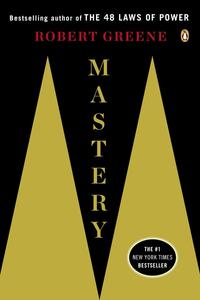
The 50th Law by Robert Greene: Summary & Notes
by Robert Greene
In One Sentence
A collaboration between Robert Greene and rapper 50 Cent that distills one ultimate law of power: fearlessness — arguing that the greatest obstacle to success is not external but the fear that lives inside us.
Key Takeaways
- The 50th Law is fearlessness — fear is the greatest limiter of human potential and must be confronted directly
- See things as they are, not as you wish them to be — self-deception is the enemy of strategic thinking
- Make everything your own — take ownership of your work, your image, your destiny
- Keep moving and embrace change — stagnation leads to death, movement creates opportunity
- Know your environment inside and out — street smarts and deep knowledge of your domain are essential
- Lead from the front — true leaders share the risks and hardships of their followers
- Know when to be aggressive and when to retreat — timing and adaptability win wars
- Turn obstacles into opportunities — adversity reveals character and creates strength
Summary
An excellent book from Robert Greene - one of my favourites among his work, and much more digestible than some of his others. The general concepts explored come down to fearlessness, and what he calls The 50th Law: "The 50th Law, however, states that there is one thing we can actually control — the mind - set with which we respond to these events around us. And if we are able to overcome our anxieties and forge a fearless attitude towards life, something strange and remarkable can occur — that margin of control over circumstance increases. At its utmost point, we can even create the circumstances themselves, which is the source of the tremendous power that fearless types have had throughout history. And the people who practice the 50th Law in their lives all share certain qualities — supreme boldness, unconventionality, fluidity, and a sense of urgency — that give them this unique ability to shape circumstance.”The book goes on to break down this law into its components, and details examples of each, as well as actionable guidelines for how to cultivate qualities and skills yourself. It’s a book you should read and digest, and then refer back to constantly. Perhaps one of Greene’s most relevant books to life in general, it provides the set of principles by which you should live. Definitely recommend.
Who Should Read This Book
- Entrepreneurs and business leaders navigating uncertain environments
- Anyone held back by fear, self-doubt, or risk aversion
- Fans of Robert Greene who want to see his ideas applied to a contemporary figure
- People interested in 50 Cent's mindset and rise from poverty to success
- Those who appreciate street-smart wisdom combined with historical examples
Favorite Quotes
- Your fears are a kind of prison that confines you within a limited range of action. The less you fear, the more power you will have.
- The greatest danger you face is your mind growing soft and your eye getting dull.
- In the end, it is the bold action that is remembered, not the cautious move.
- Think of yourself as an explorer. You cannot find anything new if you are unwilling to leave the shore.
- The firmer your grasp on reality, the more power you will have to alter it.
- When you work for others, you are at their mercy. You can be let go at any moment.
- Events in life are not negative or positive. They are completely neutral. The universe does not care about your fate.
- You need chaos in your soul to give birth to a dancing star.
FAQ
What is the 50th Law?
The 50th Law is fearlessness. While Robert Greene's previous book outlined 48 laws of power, this book argues there is one law that transcends all others: the ability to overcome fear. Fear — of failure, rejection, poverty, death — is what holds most people back from achieving their potential. By cultivating fearlessness, you unlock access to all other powers.
Why did Robert Greene write a book with 50 Cent?
Greene saw 50 Cent as a living embodiment of his principles. Rising from extreme poverty, surviving being shot nine times, and building a business empire, 50 Cent demonstrated fearlessness in action. The collaboration allowed Greene to illustrate timeless power principles through a contemporary figure readers could relate to.
How is The 50th Law different from The 48 Laws of Power?
The 48 Laws of Power is a comprehensive toolkit of strategies for acquiring power. The 50th Law is more focused, arguing that fearlessness is the master key that unlocks all other powers. It's also more personal and autobiographical, using 50 Cent's life story throughout, and has a more motivational, empowering tone.
What are the main chapters in The 50th Law?
The book covers: See Things for What They Are (Intense Realism), Make Everything Your Own (Self-Reliance), Turn Shit into Sugar (Opportunism), Keep Moving (Calculated Momentum), Know When to Be Bad (Aggression), Lead from the Front (Authority), Know Your Environment (Connection), and Respect the Process (Mastery).
Is The 50th Law suitable for business applications?
Yes. The book is highly applicable to entrepreneurship and business strategy. Themes include: taking calculated risks, adapting to changing markets, maintaining self-reliance rather than depending on employers, understanding your competitive environment, and leading by example. Many entrepreneurs cite it as influential.
Click to expand comprehensive chapter-by-chapter breakdown (~15-20 min read)



